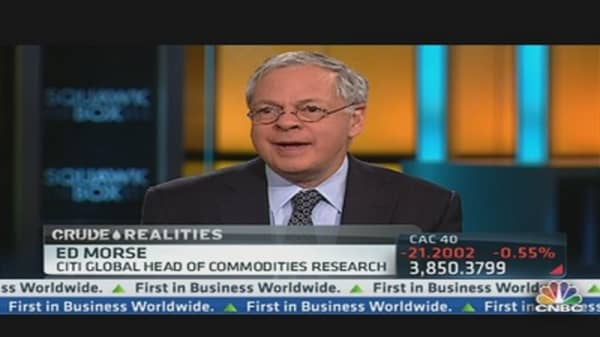For this reason, he expects oversupply and weaker demand to push Brent as low as $85 by next year and WTI to $70 per barrel. That echoed the forecast expressed last week by the International Energy Agency, who forecast in a report that global oil demand will shrink this year.
Richard Hastings, a macro strategist at Global Hunter Securities, is slightly more bullish on the price of oil than Raymond James is. Still, he also cites a diminished importance of China on global crude prices.
"The economy is changed and matured, and some of that may impact how much oil they import," he said.
China's rate of growth "could decline to 6.5 percent. Does that mean oil is going to go down in lockstep? Probably not," Hastings added. "I'm not so sure that China's slower rate of growth equals a really huge problem for global demand."
Molchanov and Hastings are far from being the only ones skeptical on China's impact on commodities. In a widely circulated note last week, Goldman Sachs called the market's concerns over the world's second-largest economy "overdone". The firm added that it expects oil to continue to rise in the near term.
(Read more: Commodities Sell-Off Overdone: Goldman Sachs)
"Commodity markets declined sharply in February along with emerging market (EM) equities due to renewed concerns over China, which we believe is overdone," Goldman analysts said in a note to clients on Monday.
When it comes to oil, Iran is a far bigger wild card for global markets, analysts say. Hastings says the sanctions applied to the country have deprived the market of supply. Should Iran's oil be allowed onto the market "oil prices would shift to the downside very quickly."
That, however, is unlikely to happen in the immediate term, if at all.Tehran's controversial nuclear program is putting Iran on a possible military collision course with the U.S. and Israel that could lead to a spike in oil prices. That would alleviate the market of its fears about China pretty quickly.
"It may eventually turn into a military confrontation," said Molchanov. "Will Iran shut down the Strait of Hormuz? That is event risk, and if it materializes oil prices could spike…and would cause a severe global recession," he said.





